5 natural ways to stop whiteflies from ruining your veg crops
These natural pest control methods could save your vegetables from troublesome bugs
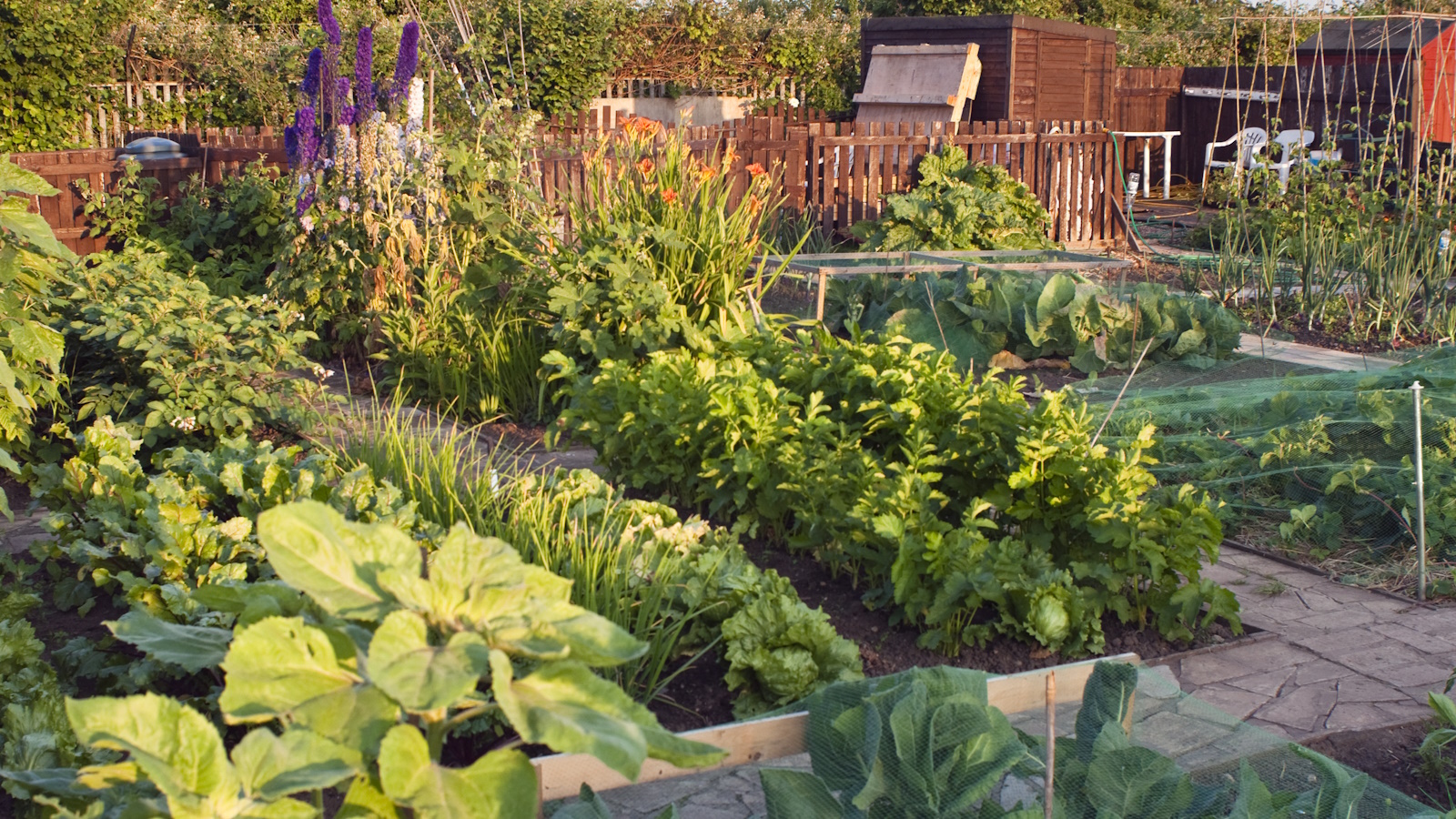

Whiteflies are one of those annoying garden pests that can often find their way onto your plants and vegetables. If not acted on promptly, these insects can infest your crops and ruin your veg.
Learning how to control the spread of these pests is important when trying to protect your plants and maintain a healthy yard. Keep a close eye on your vegetables - oftentimes catching a whitefly infestation before it really gets going can be the best way to stay on top of it as these pests can destroy plants and do serious damage if left unchecked. It's likewise important to get rid of whiteflies on houseplants as soon as you spot them.
We spoke to gardening and organic growing experts to find out what the best natural defences are against these troublesome pests.
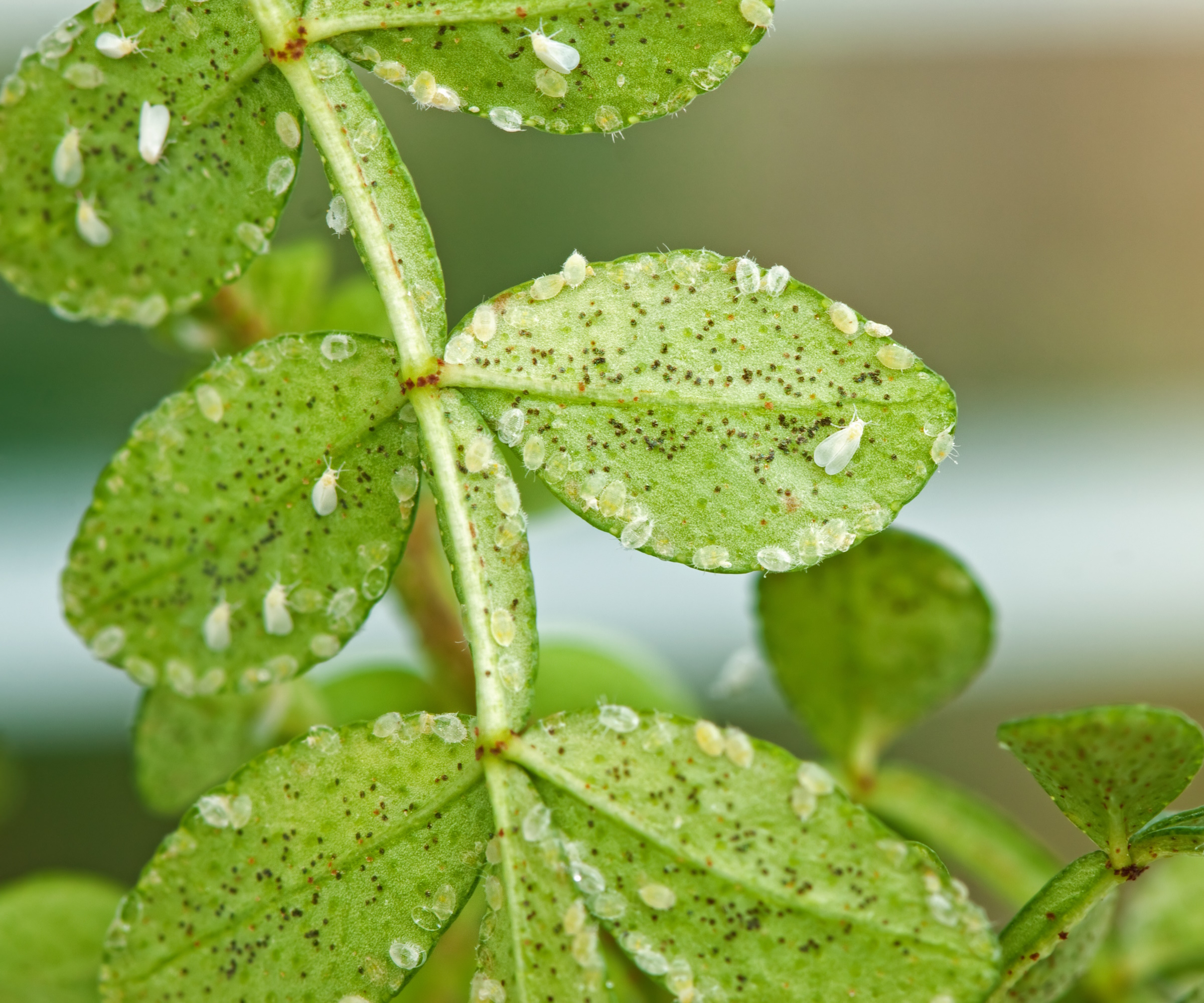
5 natural ways to get rid of whiteflies
These tiny pests can quickly infest plants, causing significant damage if left unchecked. However, there are several effective organic methods you can use to get rid of whiteflies and protect your veggies.
1. Introduce Biological Enemies
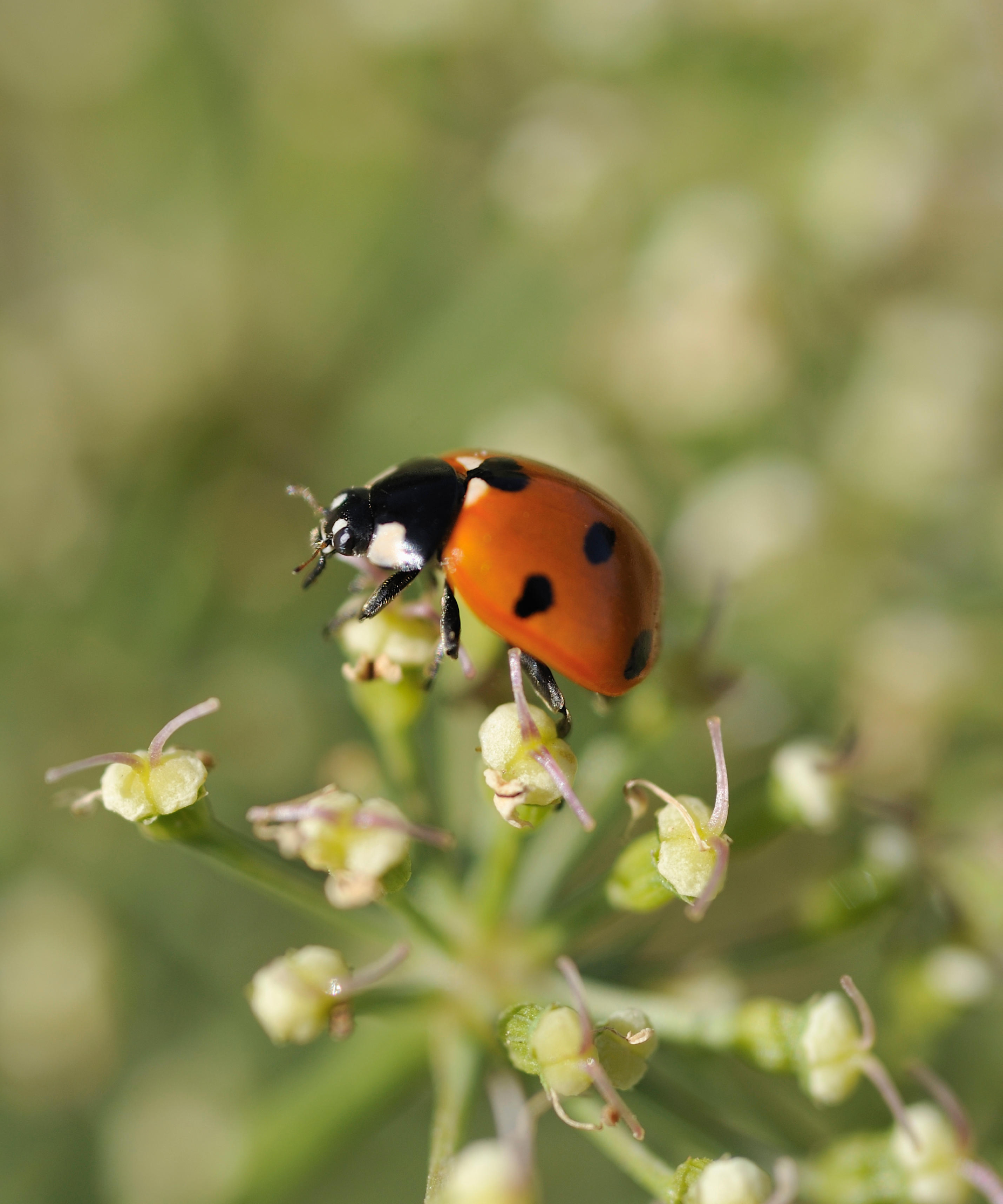
'A fantastic biological method to eradicate whiteflies would be to initially introduce some beneficial insects like ladybugs and lacewings into your garden,’ says gardening expert Victoria Cummins. ‘These enemies are quite eager to make whiteflies their meal, which is why they won't let them proliferate - in a chemical-free manner.’
Introducing ladybugs or lacewings near your veg crops is great as these natural predators are non-chemical and safe for the environment. These whitefly predators are also sustainable as they will keep reproducing and maintain control of the pests over time - thus saving you effort with multiple applications.
You can purchase ladybugs or lacewings from most good garden stores. Alternatively you can order ladybugs online from Amazon.
Release them early in morning or late in the evening when the temperature is cooler and there is a more intense activity of predators. Scatter them uniformly around your vegetable crops.
Observe your plants from time to time to see these beneficial insects in action, and within a fortnight or two, you should notice the number of whiteflies has reduced drastically in number.
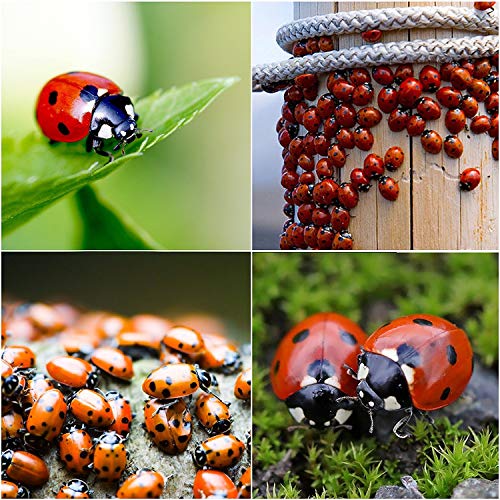
Releasing these ladybugs into your vegetable garden or on your rose bushes is a wholly natural way to control garden pests and foster a healthy ecosystem in your yard.

Victoria’s work focuses on building soil quality, cultivating fruit trees, and wild harvesting. Collaborating with homeowners, landowners, farmers, gardeners, and communities, she dedicates her expertise to healing landscapes and enhancing food production to create resilient, sustainable environments.
2. Use yellow Sticky Traps
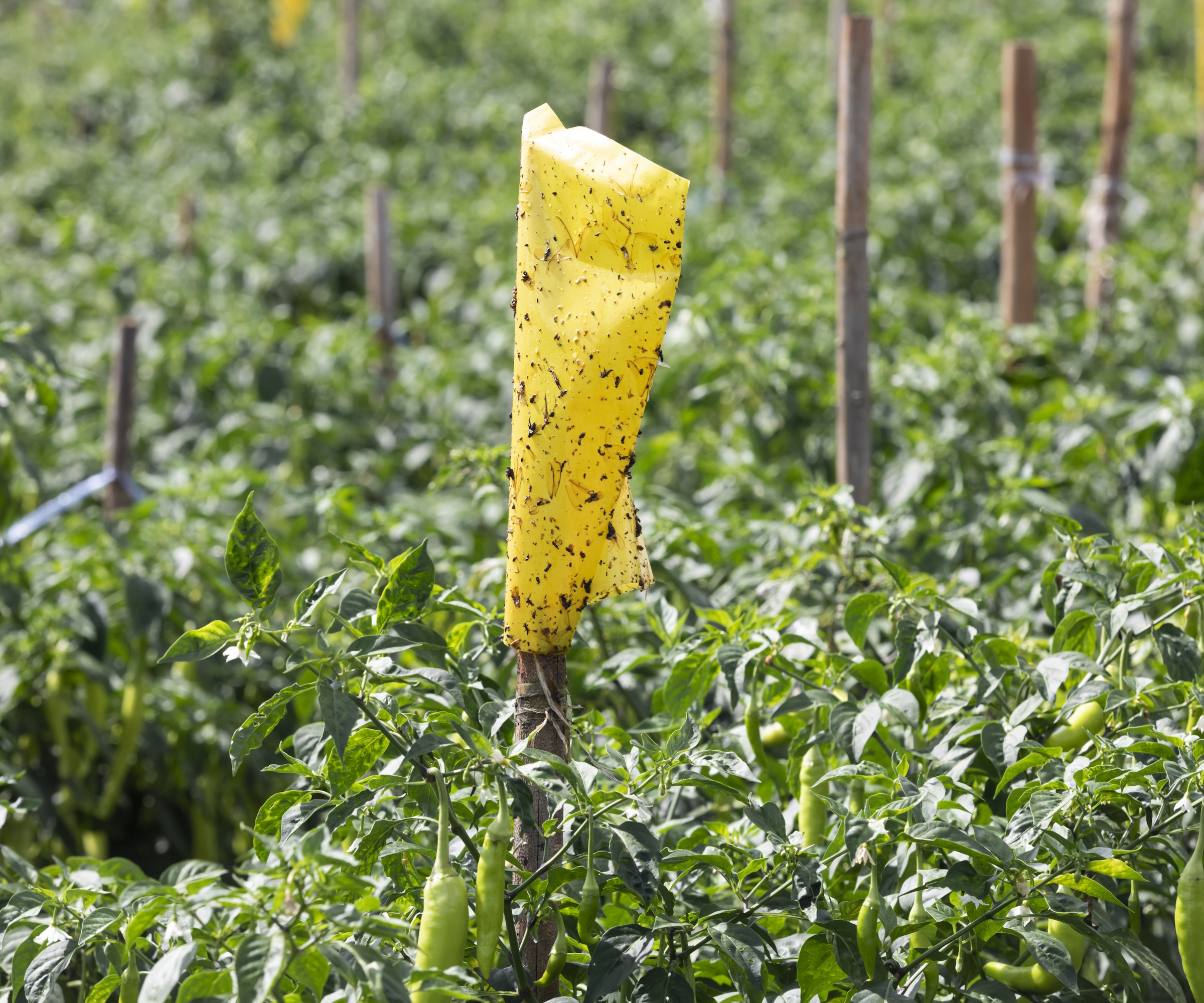
Yellow sticky traps from Amazon are very useful in monitoring and lowering the number of whiteflies on and around your plants. The intense yellow color serves as a visual-attraction method to charm whiteflies in the same light frequencies reflected from leaves of healthy plants. Once they land on this sticky surface, they become incapacitated and cannot fly away.
Place the yellow sticky traps alongside vegetables in your garden at plant height, and spaced throughout the garden uniformly. Once covered in whiteflies, replace the yellow sticky traps with new ones to capture more.
Using yellow sticky traps is another non-chemical way of controlling whiteflies and it can be used even in organic gardening.
3. Apply Neem Oil to affected crops
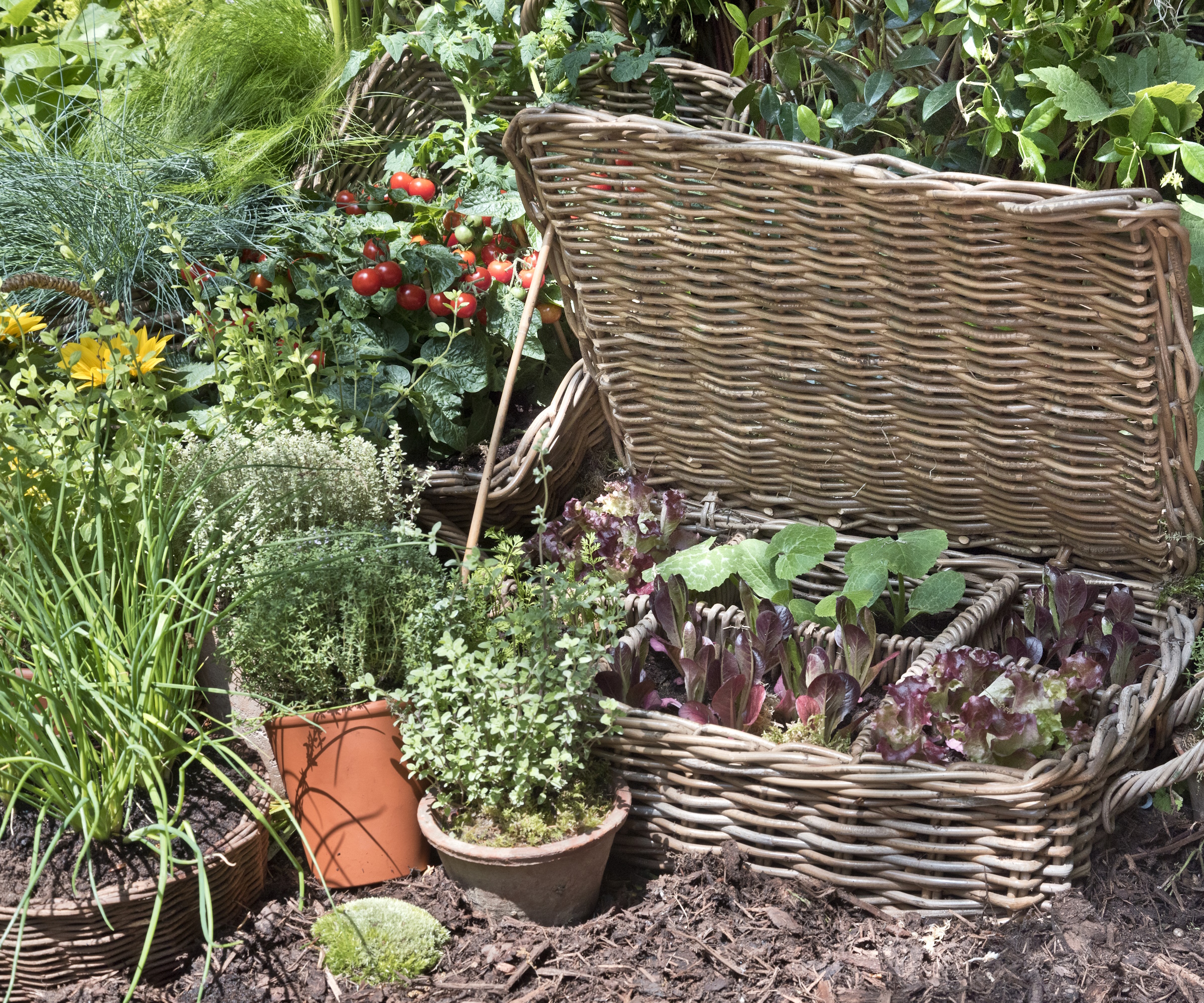
Neem oil is extracted from the seed of neem tree and is one type of biological or botanical insecticide. The honeydew affects the feeding process, molting and reproduction in whiteflies to help eliminate them.
You can mix organic neem oil such as Kate Blanc Cosmetics neem oil from Amazon to water to create a diluted solution After the solution is prepared, spray it onto the leaves of the infected plants. Reapply the application for a period between seven to fourteen days from this point until the whiteflies are suppressed.
Neem oil is non-toxic to edible plants and does not negatively affect other, useful insects such as honey bees and ladybugs, which makes it a great natural pest control method.
It is also good for controlling other associated garden insects and pests such as aphids, spider mites, and leaf miners.
4. Introduce reflective mulch to your beds
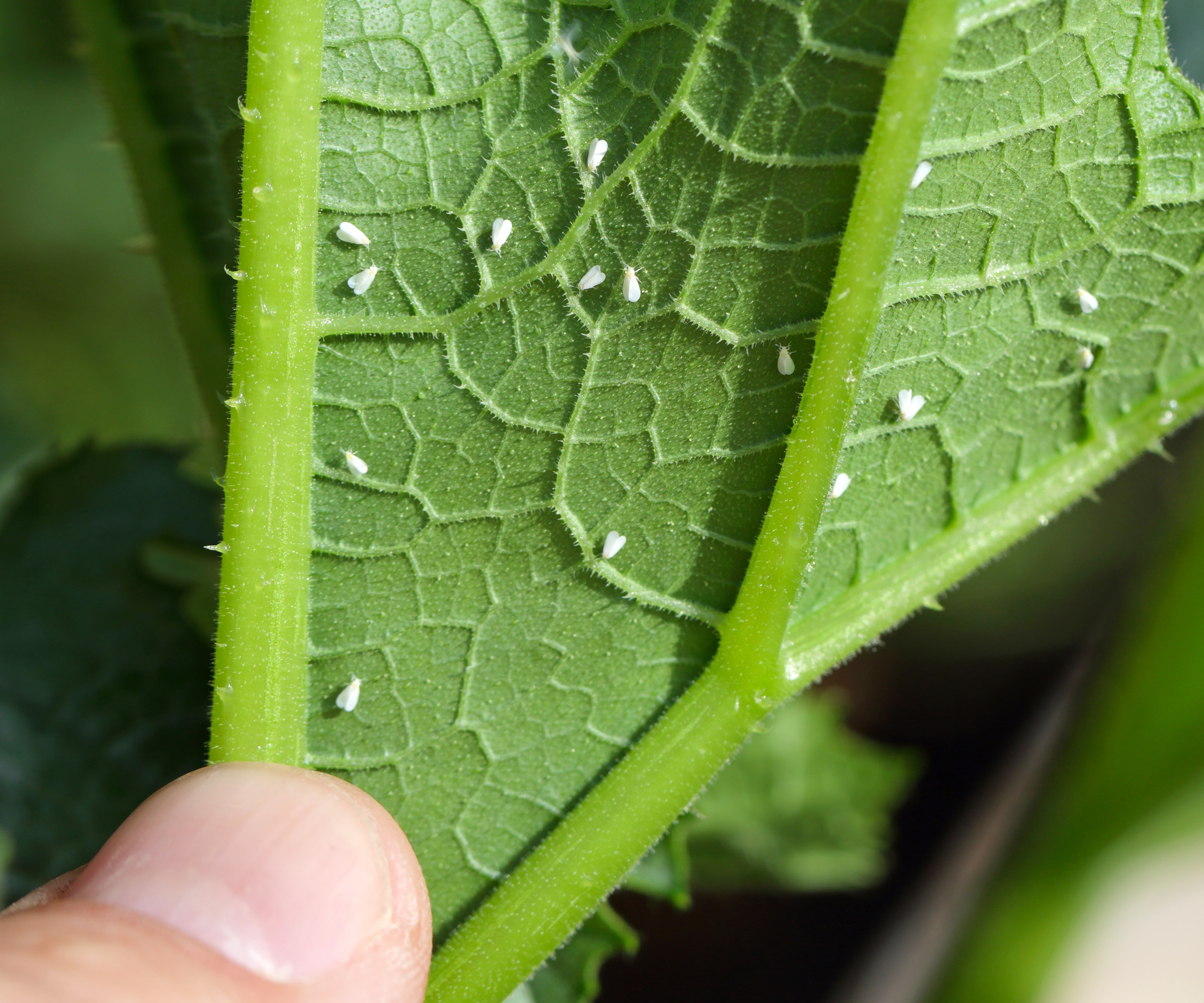
Reflective mulching involves using aluminum foil, shiny aluminum plastic, or reflective plastic. It is a passive method that creates multiple reflections of light, making whiteflies disoriented and unable to find their way to your plants.
Apply reflective mulch, such as Highly Reflective Mylar Sheets from Amazon around your vegetable plants, and be sure it is shiny side up. Attach the mulch with garden staples or hold down with heavy rocks so it doesn't blow away in the wind, and readjust them as necessary.
Using reflective mulch is comparatively easy to adopt and maintain through the growing period, offering plants continuous protection against whiteflies, and hopefully preventing an infestation rather than having to get rid of one.
5. Practice good garden hygiene
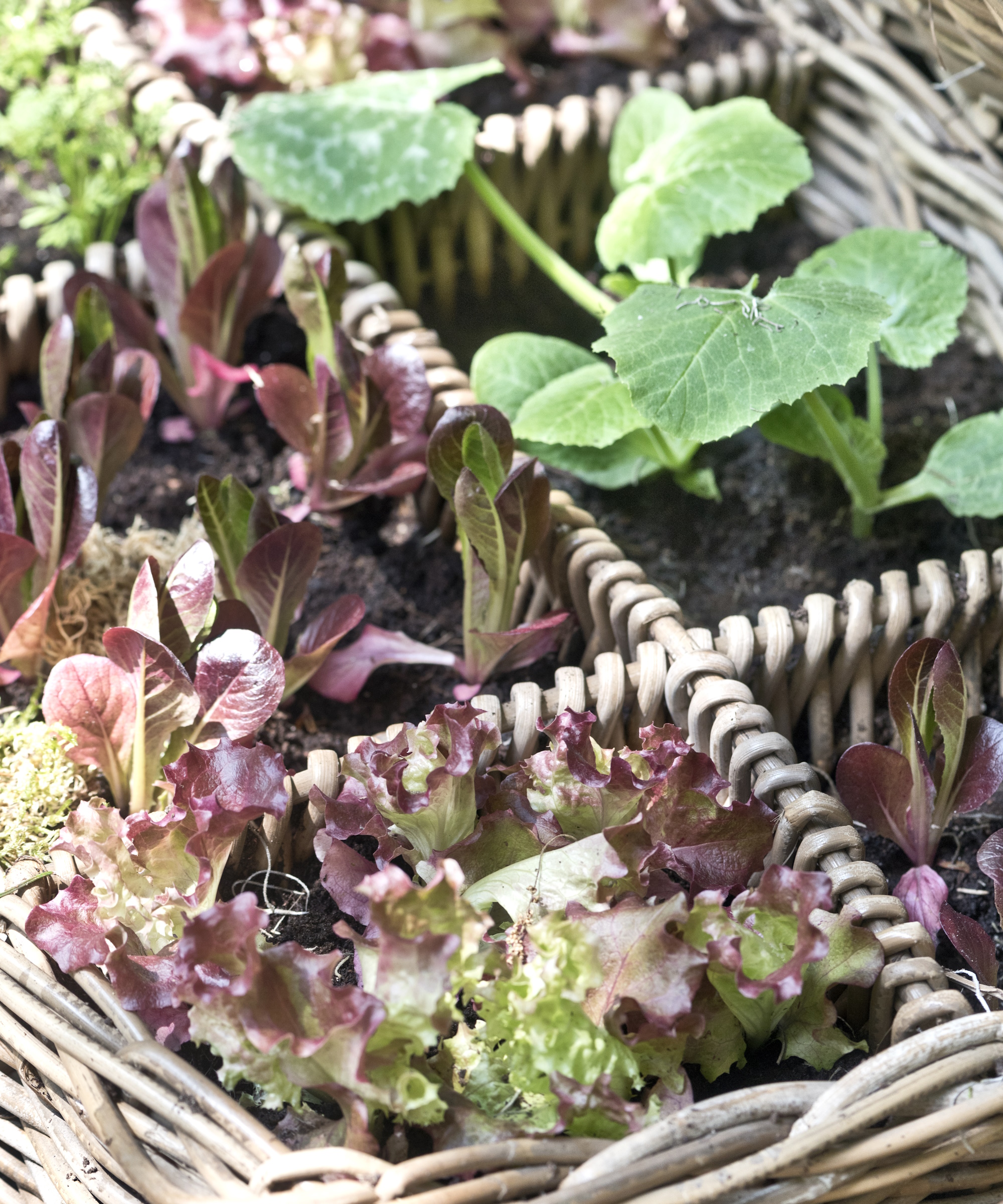
According to plant expert Resh Gala, author of Vegetable Gardening Made Easy, available from Amazon, good garden hygiene practice will help to prevent whiteflies from spreading their infection. In this context, regularly monitoring your plants for infested leaves and destroying them will help in controlling the multiplication of whiteflies and further infection to other healthy plants.
Look out for whiteflies by regularly checking for small, white insects, yellowed leaves, or sticky honeydew on leaves.
Prune and dispose of leaves or plants that show infection well away from the garden to stop the spread. Place removed plant material into a closed bag prior to disposal.
The garden must be cleaned of garbage and weeds, which might provide a place for whiteflies to multiply and mature. Sterilize gardening tools very often, which will help prevent the transport of pests.
Doing all of the above lessens stress on plants, so that proper growth and yield are achieved with better plant health in the garden.

Resh Gala runs organic gardening business @hundredtomatoes, a kitchen garden company that designs, installs and maintains organic vegetable gardens in New Jersey, Pennsylvania and New York. She is also the author of Vegetable Gardening Made Easy. Her intensive planting methods has given her a loyal social media following and she was named 2020 Gardener of the Year by Burpee Home Gardens.
FAQs
Does vinegar get rid of whiteflies?
Vinegar can also work as a pest control method for whiteflies. You can use it in your own insecticidal soap by mixing one gallon water with two teaspoons of baking soda, dish detergent, and white vinegar. Once created you should spray the solution under the leaves of your plants where the whiteflies are located.
Whiteflies typically begin reproducing in late spring, laying their eggs in a circular pattern on the underside of leaves, so it’s best to prepare your pest control arsenal in time to remove and deter these bugs as soon as they start to lay their eggs.
For more natural pest control ideas, you can read our guide to how planting marigolds around your veg crops can be super helpful in deterring unwanted pests and bugs.
Sign up to the Homes & Gardens newsletter
Design expertise in your inbox – from inspiring decorating ideas and beautiful celebrity homes to practical gardening advice and shopping round-ups.

Seraphina is a contributing editor at Homes & Gardens, writing Solved features on organizing and storage. She loves to decorate and also grow her own produce from her home in London. Her previous experience includes working at Women's Health and Fabulous Magazine.
-
 These are the colors that just don't work with purple – 4 shades to sheer clear of if you want to bring this on trend color into your home
These are the colors that just don't work with purple – 4 shades to sheer clear of if you want to bring this on trend color into your homeWhy some colors sabotage purple, and how to get it right every time.
By Sophia Pouget de St Victor
-
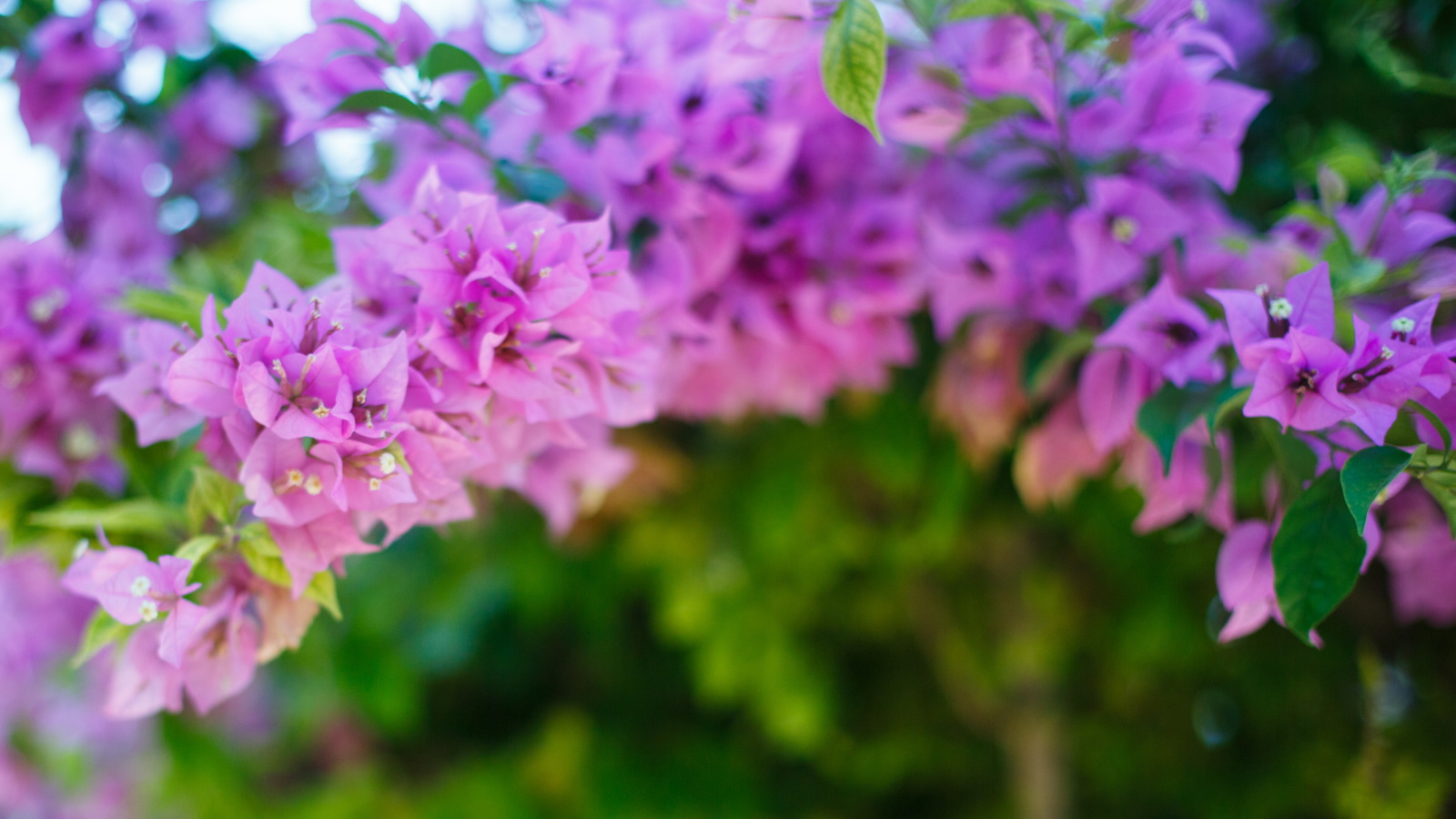 Best climbers to grow in pots – 5 easy-to-grow vines that will transform small spaces with vibrant color
Best climbers to grow in pots – 5 easy-to-grow vines that will transform small spaces with vibrant colorMake the most of small terraces, patios and balconies by filling pots with colorful climbers
By Thomas Rutter